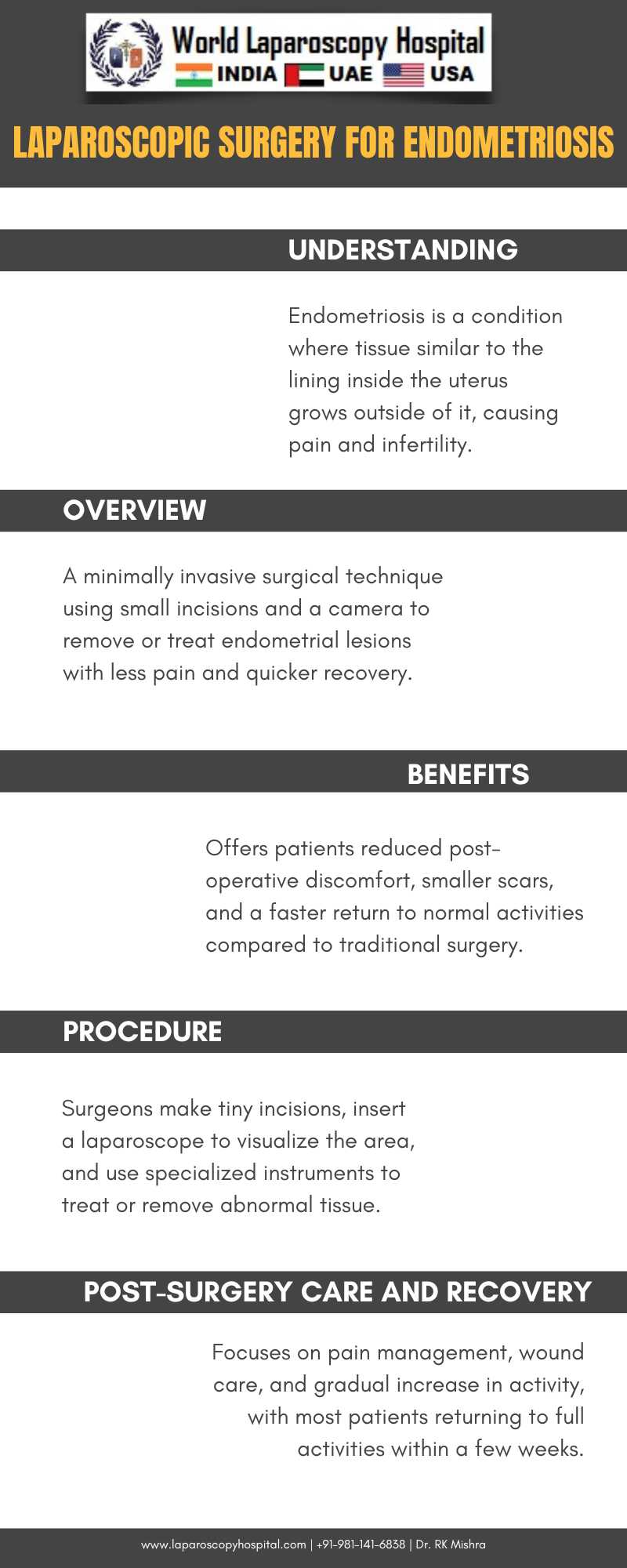
Techniques in Laparoscopic Surgery for Endometriosis
Laparoscopic surgery for endometriosis involves the use of a laparoscope, a slender instrument with a light and camera at the end, which is inserted through small incisions in the abdomen. This approach allows surgeons to visualize the pelvic organs and the extent of endometriosis without the need for large incisions. The key techniques employed in laparoscopic surgery for endometriosis include:
1. Diagnostic Laparoscopy: This initial step involves the detailed inspection of the pelvic and abdominal cavities to confirm the presence, location, and extent of endometriotic lesions. It is crucial for mapping the disease before proceeding with treatment.
2. Excision and Ablation: Excision involves cutting out endometriotic lesions or cysts, while ablation entails destroying the endometriosis tissue using heat or laser. Excision is generally preferred for its thoroughness in removing diseased tissue and providing tissue for histopathological examination.
3. Adhesiolysis: This involves the careful separation of adhesions (scar tissue) that are common in endometriosis patients and can contribute to pain and infertility. Adhesiolysis must be performed with precision to avoid damage to healthy tissue.
4. Preservation of Reproductive Organs: Whenever possible, the surgical technique aims to preserve the uterus, ovaries, and fallopian tubes to maintain fertility and hormonal balance.
5. Management of Complications: Skilled laparoscopic surgeons also address any complications of endometriosis, such as ovarian cysts (endometriomas) or deep infiltrating endometriosis, which may involve the bowel, bladder, or other organs.
Outcomes of Laparoscopic Surgery for Endometriosis
The outcomes of laparoscopic surgery for endometriosis are generally positive, with many women experiencing significant relief from pain and improvement in quality of life. The specific outcomes include:
1. Pain Relief: The majority of patients report substantial reduction in pelvic pain, dysmenorrhea (painful periods), and dyspareunia (pain during intercourse) post-surgery.
2. Improved Fertility: For women with endometriosis-associated infertility, laparoscopic surgery can improve the chances of natural conception, especially when endometriomas and adhesions are effectively removed.
3. Reduced Recurrence: While endometriosis can recur, effective laparoscopic excision reduces the likelihood of recurrence and the need for repeat surgeries.
4. Minimal Scarring and Quick Recovery: The minimally invasive nature of laparoscopy leads to smaller scars, less postoperative pain, and quicker return to daily activities.
5. Enhanced Quality of Life: By addressing both the physical symptoms and the emotional burden of endometriosis, laparoscopic surgery can significantly enhance the overall quality of life.
Conclusion
Laparoscopic surgery for endometriosis offers a sophisticated, minimally invasive approach to a complex and often debilitating condition. Through advanced surgical techniques, it provides effective management of endometriosis, leading to significant improvements in pain, fertility, and overall well-being. As surgical techniques and technologies continue to evolve, the outcomes for patients with endometriosis are expected to improve further, offering hope and relief to those affected by this challenging condition.